Speaker
Description
Time is crucial in GNSS (Global Navigation Satellite System) systems such as GPS, GLONASS, Galileo and Beidou, it is measured with a high precision, enabling accurate position of the receiver. Thus receiver's clock must be very accurate to enable accurate position and a number of error-producing factors (e.g. multipath, atmosphere impact) must be included into processing.. Time and/or accurate position determination is important in many fields such as navigation, surveying, meteorology and even in finance.
In this presentation authors analysed a number of clock correction products in terms of number and magnitude of outlier observations in four GNSS systems based on final MGEX products for the years 2014-2021. Among this time there where available 120 satellites: 37 Beidou, 26 Galileo, 32 GPS and 25 GLONASS satellites. Authors analysed phase, frequency and noise data. Figure 1 shows a sample raw phase data of selected satellites, which shows a different change and nature of clock correction course in time, e.g. line, polynomial, random etc.
Fig. 1. Phase data of selected satellites: C46 (Beidou) and G32 (GPS).
First derivate of the phase in time is a frequency (Figure 2), which allows to see a quite different nature of the graphs courses between GNSS systems, satellite blocks and between clocks types.
Fig. 2. Frequency data of selected satellites: C24 (Beidou) and E01 (Galileo).
The Allan deviation (ADEV) and it’s modificated version allows for determine a noise characteristic for analysed time series and it is a common tool for atomic clock stabilities analyses. Figure 3 shows the HDEV (Hadamard deviation, modificated version of ADEV) of selected satellites, which allows for detect based of the graph course noise type characteristic for selected satellites and its intervals. Figure 4 is similar to Figure 3, but allows for comparison HDEV changes year-to-year.
Fig. 3. Yearly Hadamard deviation of selected satellites: C46 (Beidou) and E01 (Galileo).
Fig. 4. Multidimensional Hadamard deviation selected satellites: C46 (Beidou) and G32 (GPS).
As results authors find a couple of new phenomena, e.g. stability of the GPS and GLONASS systems (in general) are better than the BeiDou and Galileo systems, which means that repeatability of the clock corrections are more consistent in time.

